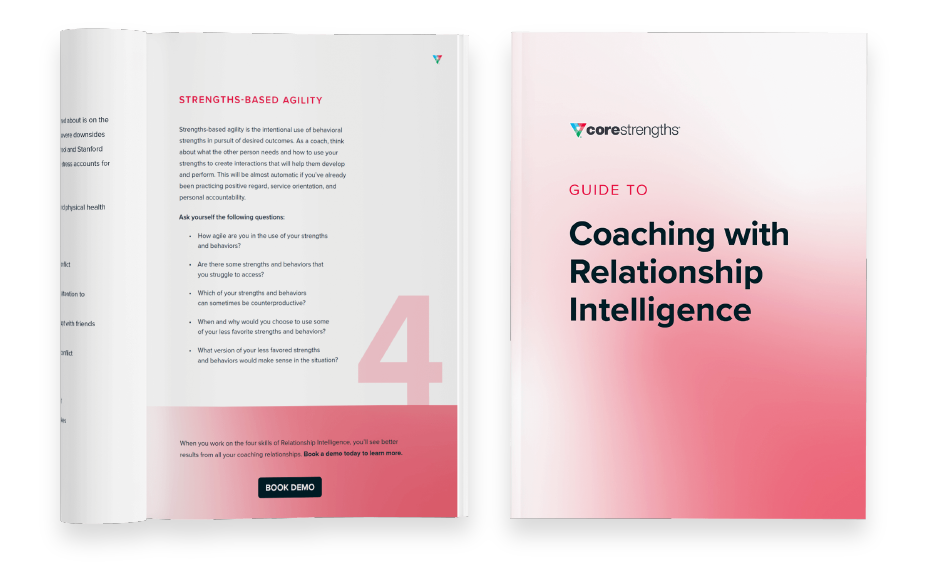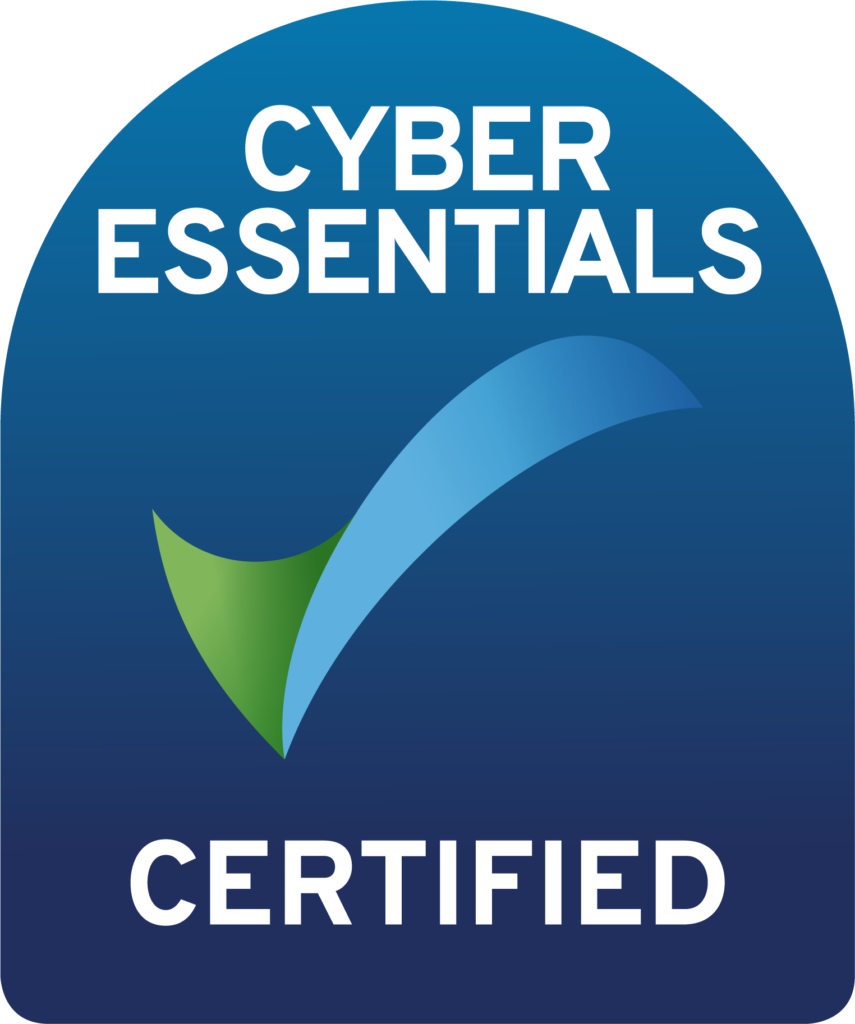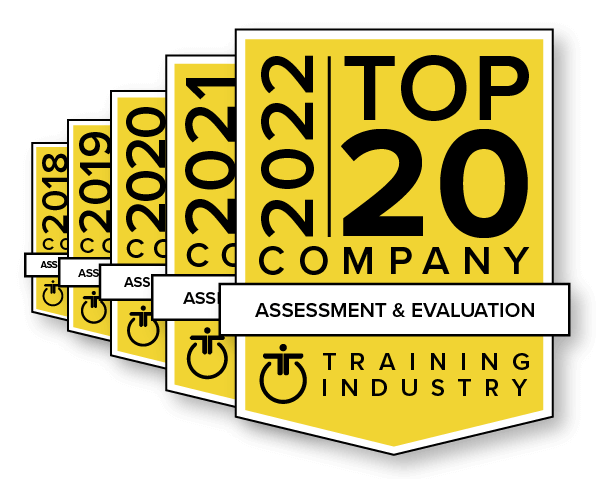We all fall into bad habits sometimes, despite the best intentions. We’re rushed, overworked, or have too many people to coach—so when it comes time to have a coaching conversation, it might not be as individualized as we would prefer.
But it’s important not to default to one-size-fits-all coaching, even when the conditions are all wrong for correct coaching. There are five variables that make every coaching experience different:
- Knowing yourself
- Knowing the other person
- Relationship Intelligence
- The relationship in the moment
- The intent of the conversation
Instead of thinking of these variables as complications that make coaching more difficult, use this as a framework to lower the barrier to coaching: glancing at it will quickly remind you how to avoid one-size-fits-all coaching when you’re pressed for time. In each category, we’ve even included the one question you need to ask yourself if you have just one minute to prepare for the conversation.
If you’re new to coaching, this will help you activate your coaching relationships. If you have established coaching relationships, this will help you amplify your positive impact.
1. Knowing yourself
Coaching improves performance and is essential to organizational success. You know it. Your boss knows it. Your boss’s boss knows it. And research proves it. A study by the International Society for Performance Improvement found that coaching has a 221% return on investment. All studies on coaching show that effective coaching leads to outcomes like stronger sales results, higher productivity, lower intentions to quit, better employee engagement, improved teams, and greater application of training.
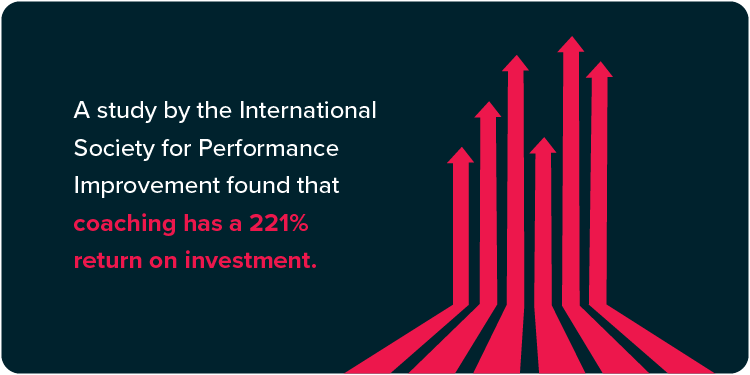
But all of that is evidence for how organizations benefit from coaching, not why you specifically should invest your time, energy, and emotional resources into building coaching relationships. You’re not a statistic, you’re an individual.
So, why do you want to coach? Even if coaching is in your job description and you know it will help the organization, those reasons won’t be motivating enough unless you care about coaching intrinsically.
In a coaching relationship, knowing yourself matters. Coaches must examine who they are and how their motives and values influence the people they coach.
Some of you will find coaching appealing because it’s a way to get more things done, faster, with better results. Some will be drawn to coaching as an opportunity to help other people succeed and you see it as a way to make their lives easier. And some will enjoy coaching to explore the principles that guide others’ decisions and contribute to a process they can use going forward. Discover our SDI 2.0 assessment to learn more about your motives.
I’ve found that when leaders say something like, “I don’t really want to coach,” it’s because they’ve been told to coach—maybe even told how to coach—but they don’t know why they, as an individual, should care. Once you connect coaching to your motives, your tune will change, and so will the results.
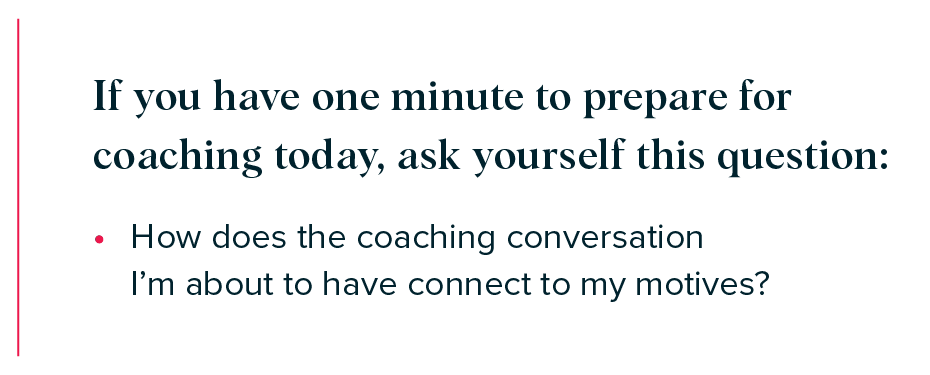
2. Knowing the other person
The expectations of the person you coach are just as important as your expectations of them. And the reasons why they want to be coached by you are just as important as the reasons you want to coach them.
Given that people are complex and different, there is no one-size-fits-all solution to creating shared expectations with the people you coach. That’s where it’s just as important to understand their motives as your own.
The people you coach are all individuals; they see the world through different lenses and respond to different styles of coaching and feedback. You’ll need to adapt to their preferred styles, rather than coaching in the way you would want to be coached.
And coaching is a relationship. Over time, get to know each person you coach, discovering their strengths and the style of coaching they need from you:
- What are their core values?
- What are they looking for from their current role?
- What kind of development and growth do they want?
- What style of communication do they prefer?
- What coaching approach do they want?
- How does your natural style suit (or clash with) what they want from a coach?
- What strengths or behaviors might you need to dial up or down for each of the people you coach?
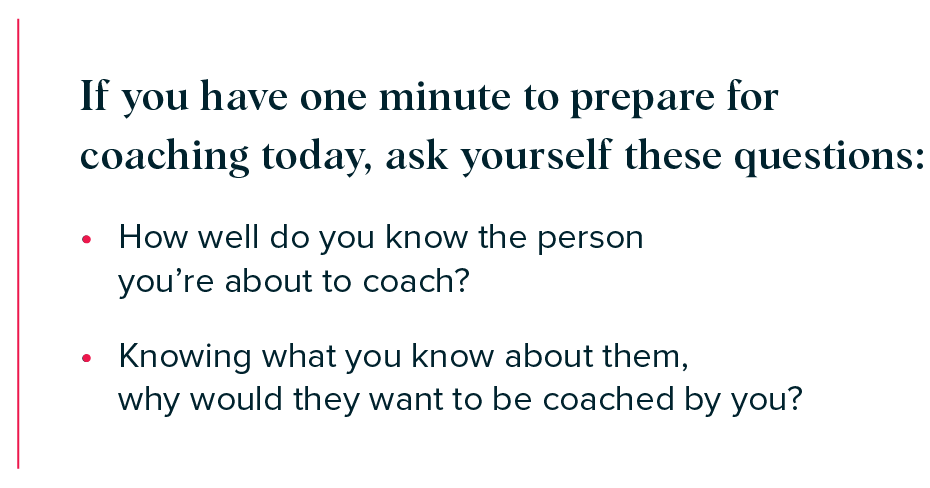
3. Relationship Intelligence
Coaching is a relationship, and the relationship can be improved by using Relationship Intelligence: insight for adjusting your approach to make interactions more effective. You can gain some good insights into people’s motives, values, and strengths with the SDI 2.0 Assessment. Then, putting those insights into action when you interact takes four main skills:
- Positive regard: when you believe all people (including yourself) have the capacity to reason and to make their own decisions, and that every person has a moral right to be treated with dignity and respect. This creates conditions where people are free to do their best.
- Service orientation: when you seek to create lasting value in relationships, not only by serving others but by allowing others to be of service to you. It’s reciprocal.
- Personal accountability: when you recognize that every person is in control of his or her choices and takes responsibility for the outcomes of those choices.
- Strengths-based agility: when you intentionally use behavioral strengths in pursuit of desired outcomes.
If you want to see these skills in the people you coach, they will need to see them in you first. That’s why we created a guide to developing these four crucial skills.
Download our guide to coaching with Relationship Intelligence.
4. The relationship in the moment
A coaching relationship develops over time, and every moment together adds up. Making a coaching relationship work requires shared experiences, regular interactions, and aligned expectations.
Your current relationship with each of the people you coach determines where you need to start coaching today. Some coaching relationships will be new and require establishing. Others will have some history and may require adjustment.
Consider your relationship with each of the people you coach, at this moment in time:
- Do you have mutual positive regard for each other?
- Do either of you have a negative view of the current relationship?
- How similar or different are your personalities and communication styles?
- Do you have strengths or behaviors that complement or contradict each other?
If there are negative experiences in your shared history, step into their shoes and try to see each experience from their point of view. Revisit the moments of conflict or discomfort, challenge your assumptions, and look for their positive intent.
It’s worth remembering that you or the people you coach may bring some negative baggage around coaching from previous, unrelated experiences on another team or at another organization. This history matters too and needs to be recast.
The goal is to enter the next coaching conversation with a different frame of mind, so you can be more supportive and agile, rather than rigid or abrasive.
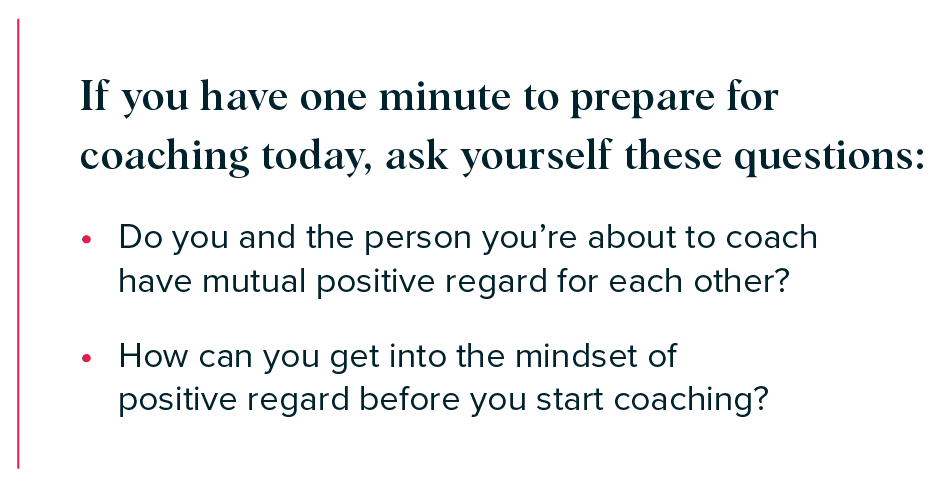
5. The intent of the conversation
Are you coaching because of a performance issue? A development discussion? The conversation should have one clear purpose so you can stay on topic and know at the end of the conversation whether you achieved what you wanted.
Whatever the purpose, you need conversation tools that get people talking about their challenges and opportunities. Good questions tend to bring new information to the surface, help people consider different options, and challenge assumptions.
The intent behind your questions goes a long way to a productive coaching conversation. The way you ask questions and listen is how you show your positive intent.
Whether your intent is to learn, confirm, or persuade, asking questions with positive regard and service orientation will help people open up. Without positive regard and service orientation, people might get suspicious, defensive, and less willing to engage in a conversation. And once you get people talking, listen with an open mind and suspend judgment.
Even though you can’t control how all your words and actions are received, you can always make an attempt to create a positive interaction by acting with the best intent and knowing your audience as well as possible.
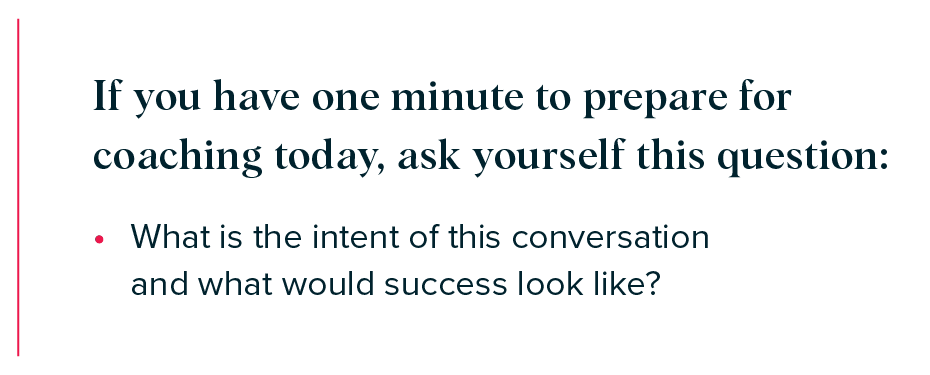
Don’t overcomplicate coaching!
A coaching relationship is just like any other relationship: it will succeed best if both parties are their full selves, respect each other, and both seek to understand the other person and grow personally. The five variables—knowing yourself, knowing the other person, Relationship Intelligence, the current relationship, and the intent—apply when you’re heading into a conversation in any other relationship in your life. So remember to be human in a coaching relationship.
People tend to forget how to be human when they get into professional situations—or they’ve been encouraged not to be. At Core Strengths, we’re here to remind you that you know how to build a great coaching relationship even if you don’t yet have the language for it. You know what good looks like. These variables and this guide just formalize something you already recognize—and probably are already doing—so you can be yourself with more skill.
Download our guide to coaching with Relationship Intelligence
